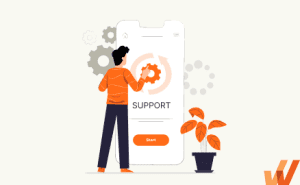19 Best Healthcare CRM Software in 2024
- Published:
- Updated: July 8, 2024
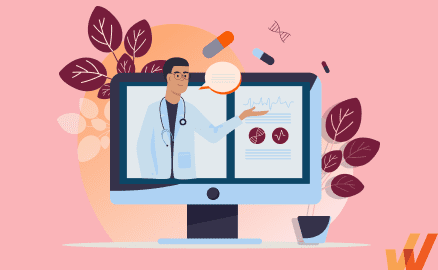
Every day, healthcare organizations are flooded with data—from detailed patient health records to countless interactions. This isn’t just data; it’s the backbone of their operations, crucial for enhancing everything from daily administration to targeted marketing and patient outreach.
The unique complexities of healthcare data often prove too much for standard CRM tools, sparking an evolution within the CRM technology market.
Today, we see a range of CRM platforms specifically designed for the healthcare sector. These aren’t your typical CRMs; they’re built to cater to the nuanced needs of hospitals and their patients. By offering a 360-degree view of every interaction between healthcare providers and patients, these specialized systems do more than just manage data, they turn it into a powerhouse of insight and efficiency.
What makes these healthcare CRMs stand out? They offer features tailored for the medical field, like robust data security measures, seamless communication tools, and real-time analytics. These tools not only safeguard sensitive information, but also enhance patient engagement and streamline processes.
With this software, healthcare providers can better anticipate patient needs, customize treatments, and ultimately, boost patient satisfaction—ushering in a new era of healthcare delivery that is both effective and efficient.
In this article, we explore the transformative role of healthcare-specific CRM systems in enhancing patient care, streamlining operations, and safeguarding sensitive data within the healthcare industry.
What is the best healthcare CRM in 2024?
- Salesforce Health Cloud
- Zoho for Healthcare
- Hubspot for Healthcare
- Veeva
- Microsoft Cloud for Healthcare
- Epic
- Pipedrive
- Healthgrades
- Kareo
- Greenway Health
- NextGen Healthcare
- Actium Health
- NimbleRx
- Therapy Notes
- Athenahealth
- Insightly
- DrChrono
- Cerner
- Practice Fusion
What Is a Healthcare CRM?
A healthcare CRM, or patient relationship management (PRM), centralizes and manages patient information, including medical history, prescription details, appointments, and communications. This helps professionals understand each patient’s health journey and improves patient care, operational efficiencies, and communication. These systems also support personalized healthcare services, manage data, ensure privacy compliance, and improve healthcare outcomes through informed decision-making.
Top 19 Healthcare CRM Software in 2024
Here’s a list of the best healthcare CRM software for you to consider in 2024:
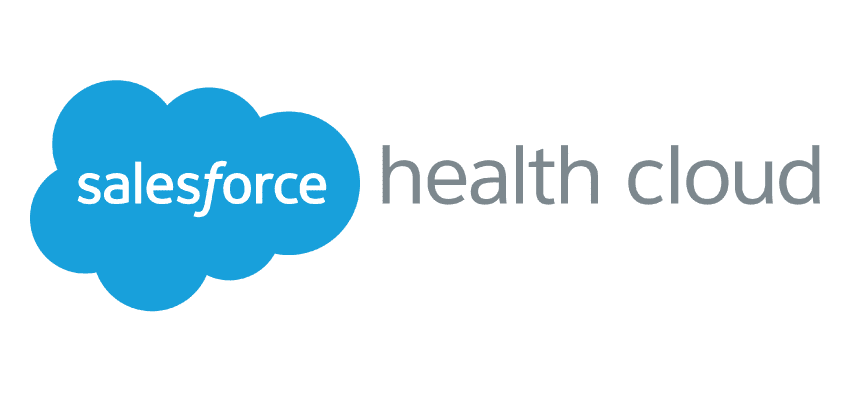
1. Salesforce Health Cloud
- G2 Rating: 3.8 out of 5 stars
- Price: Contact for pricing
Salesforce Health Cloud is designed to personalize patient engagement by integrating patient data into a single platform, providing healthcare providers with a 360-degree view of the patient. This CRM supports seamless collaboration across care teams and offers comprehensive analytics to track patient interactions and health trends. Its adaptability to various healthcare workflows makes it a great option for healthcare organizations that want to improve efficiency and boost patient satisfaction.

Key features:
- Integrates data from multiple sources to provide a unified view of the patient’s health records, treatment plans, and interactions.
- Pre-built and customizable templates that facilitate the management of individualized care plans.
- AI-powered analytics tool that provides insights and predictions for patient care and operational efficiency.
- Mobile app for care coordination and patient engagement on the go.
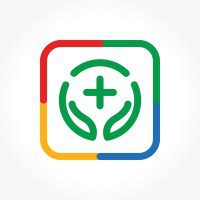
2. Zoho for Healthcare
- G2 Rating: No rating available
- Price: Contact for pricing
Zoho for Healthcare offers a tailored solution for healthcare providers looking to streamline operations and patient management. It provides tools for managing patient records, scheduling, and communication— all integrated into a single platform. Zoho’s automation capabilities reduce administrative overhead and enhance patient correspondence. The platform’s scalability suits small clinics to large hospitals, making it versatile for various healthcare settings.
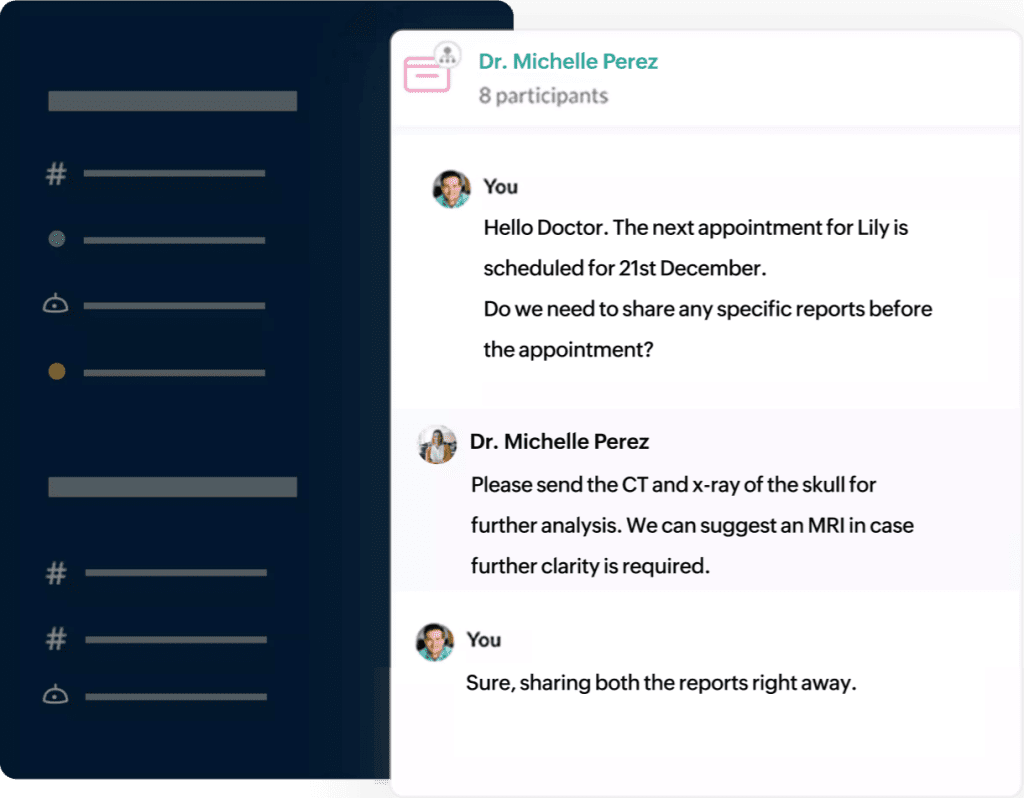
Key features:
- Comprehensive management of patient records, including medical history, treatment, and communications.
- Integrated scheduling tool that syncs with calendars and provides reminders to patients and providers.
- Marketing tool integration for targeted patient communication and engagement campaigns.
- Supports email, phone, chat, and social media interactions within the platform.
- Real-time data visualization tools to track performance and patient outcomes.

3. Hubspot for Healthcare
- G2 Rating: No rating available
- Price: Free starter plan; paid plans start at $45/month
HubSpot for Healthcare is a user-friendly platform that helps healthcare providers manage patient interactions efficiently. It combines marketing, sales, and service software, providing tools to attract new patients, engage them effectively, and offer them personalized care. The CRM’s intuitive design and extensive integration capabilities make it ideal for healthcare marketers looking to increase patient acquisition and retention.

Key features:
- Stores detailed contact information and interaction logs in a centralized database.
- Provides tools to automate email campaigns and content delivery to patient lists based on their engagement.
- Offers patient service tools, including a ticketing system, feedback surveys, and knowledge base management.
- Customizable reports and dashboards to monitor marketing, sales, and service activities.
- Extensive integration with other software tools and healthcare systems.
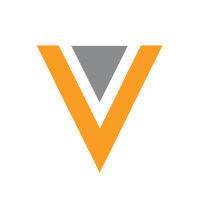
4. Veeva
- G2 Rating: 3.9 out of 5 stars
- Price: Contact for pricing
Veeva is specifically designed for the pharmaceutical and life sciences industries, providing advanced capabilities for managing drug launches and patient engagement. It offers insights into healthcare provider behaviors and patient needs, supporting targeted communications and compliance monitoring. Veeva is renowned for its strict adherence to industry regulations and its ability to scale with the needs of organizations.

Key features:
- Enables consistent and compliant customer experiences across multiple channels, including face-to-face, email, and web channels.
- Regulatory documentation and content management system that ensures compliance and efficient content handling.
- Real-time customer data and insights to improve engagement strategies.
- Analytics tools to measure and optimize interactions with healthcare professionals.
- Tools to manage and optimize territories and alignments for sales teams.

5. Microsoft Cloud for Healthcare
- G2 Rating: No rating available
- Price: Contact for pricing
Microsoft Cloud for Healthcare empowers healthcare organizations to deliver personalized care and improve operational outcomes. It integrates with other Microsoft products, providing a cohesive environment for data handling and patient management. The AI-driven insights and real-time data capabilities help predict patient needs and optimize care pathways.
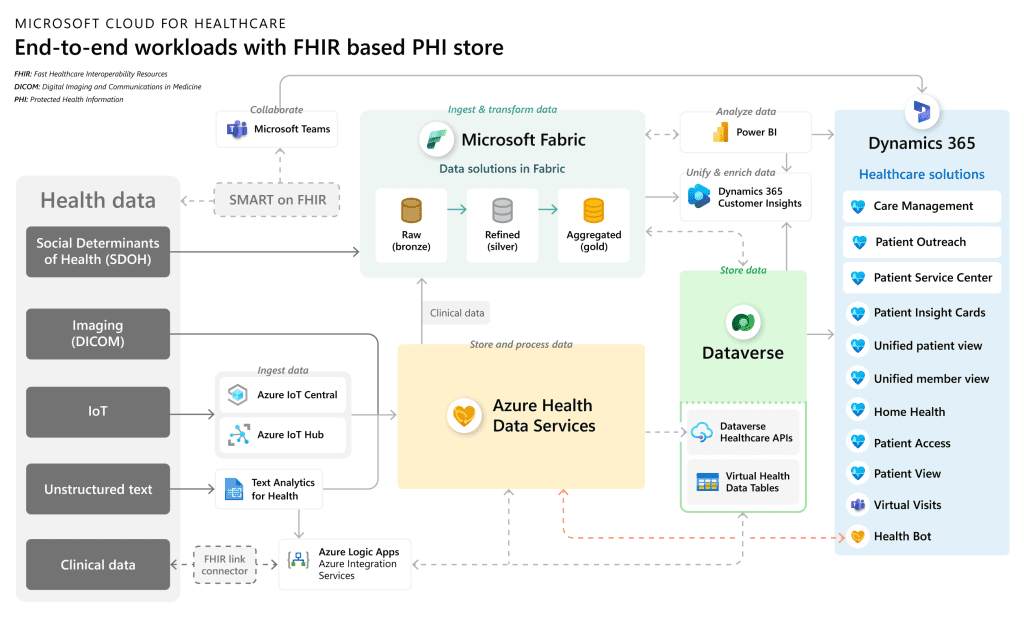
Key features:
- Consolidates patient data from various sources into actionable insights to enhance patient care.
- Offers tools to coordinate patient care across teams, ensuring all members have the latest updates and patient status.
- Manages memberships, benefits, and other aspects of patient engagement.
- Pre-built templates for setting up telehealth services, including virtual visits and remote patient monitoring.
- Built-in compliance documentation and tools specific to healthcare regulations.
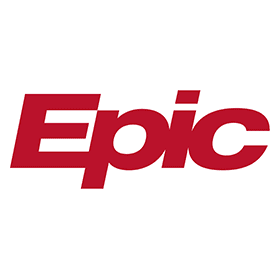
6. Epic
- G2 Rating: 4.2 out of 5 stars
- Price: Contact for pricing
Epic is widely recognized in the healthcare industry for managing patient information and streamlining hospital workflows. It excels in handling large volumes of data, ensuring that patient information is secure and easily accessible. Epic’s comprehensive suite includes modules for clinical, administrative, and billing functions, making it a great choice for large healthcare systems.
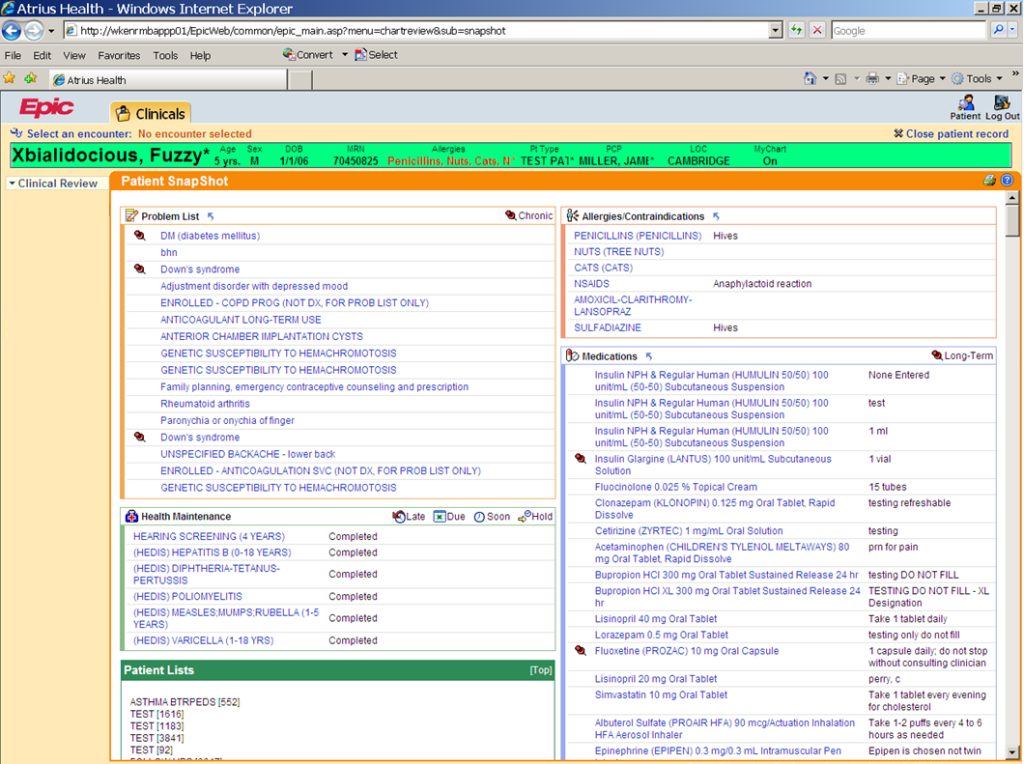
Key features:
- Offers a comprehensive, real-time patient record accessible across the entire Epic ecosystem.
- Patient portal that allows patients to manage their appointments, view test results, and communicate with their providers.
- Health information exchange tool allowing data sharing across non-Epic systems.
- A web-based application for referring providers to send and receive information about their referred patients.
- Provides data analysis tools for managing population health and preventive care strategies.

7. Pipedrive
- G2 Rating: 4.3 out of 5 stars
- Pricing: Starts at $14/user/month
Pipedrive focuses on streamlining patient interaction pipelines and improving communication channels. It offers visualization tools that help track patient interactions from initial contact to ongoing care. Pipedrive’s customization options allow healthcare providers to tailor the CRM to specific processes, enhancing overall productivity and patient satisfaction.
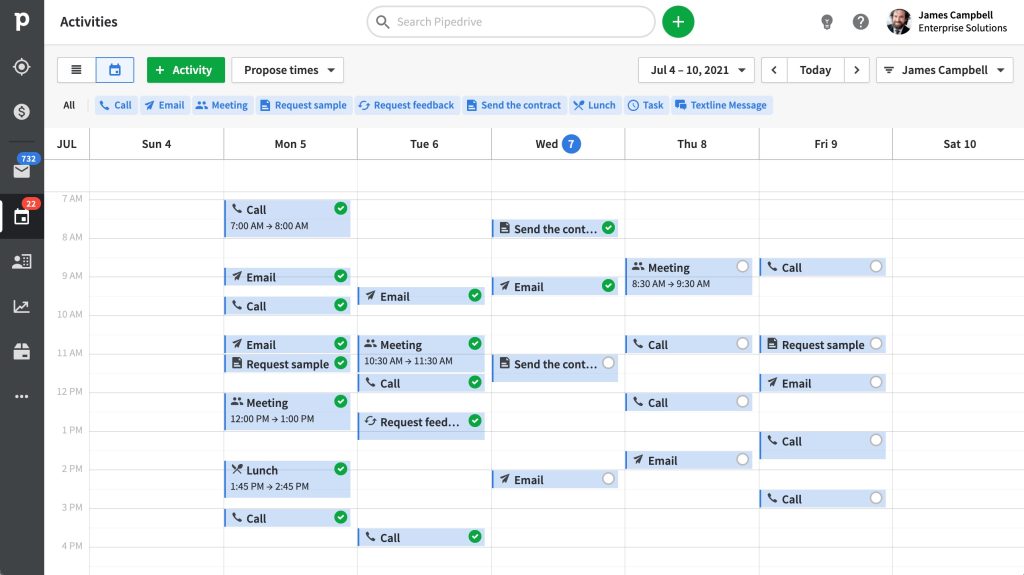
Key features:
- Customizable pipelines visually track patient interactions and care cycles.
- Automated reminders for follow-ups, appointments, and tasks to ensure no patient interaction is missed.
- Syncs with email services for seamless communication within the CRM environment.
- Streamlines repetitive tasks like data entry and follow-up scheduling to increase efficiency.
- Full-featured mobile access allows for the management of patient relationships on the go.

8. Healthgrades
- G2 Rating: 3.8 out of 5 stars
- Price: Contact for pricing
Healthgrades is tailored to help healthcare providers enhance patient acquisition and retention through data-driven marketing and patient engagement strategies. It specializes in online reputation management, improving how healthcare providers are perceived online. Healthgrades offers tools for targeted patient outreach and performance tracking, which are crucial for improving service delivery and patient outcomes.

Key features:
- Enables patients to book appointments directly through the Healthgrades platform.
- Tools to monitor and respond to patient reviews and ratings online.
- Develops and deploys personalized marketing campaigns to attract and retain patients.
- Provides analytics on hospital and physician performance to improve patient satisfaction.
- Tools to identify and manage patient risk factors based on historical data and engagement.
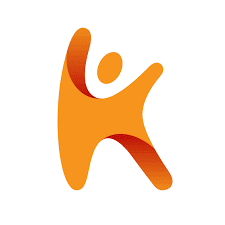
9. Kareo
- G2 Rating: 4.1 out of 5 stars
- Price: Contact for pricing
Kareo is designed for smaller healthcare practices. It offers a simple yet powerful CRM tool to manage patient appointments, billing, and communications. It provides a seamless interface for electronic health records and practice management, facilitating improved patient care and administrative efficiency. Kareo’s affordability and user-friendly features are ideal for healthcare startups and small medical practices.
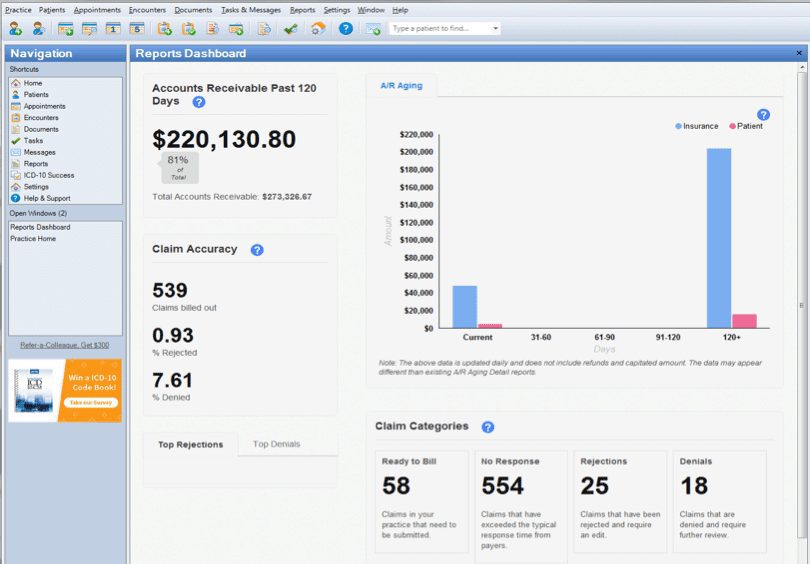
Key features:
- Facilitates easy documentation of clinical encounters with templates and customizable forms.
- Integrates telehealth capabilities directly within the CRM for remote patient consultations.
- Automates billing and coding processes to ensure accuracy and compliance.
- Includes a patient portal for appointment scheduling, bill payment, and direct communication with providers.
- Offers detailed reports and dashboards to analyze practice performance and patient health trends.
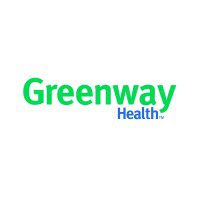
10. Greenway Health
- G2 Rating: 2.7 out of 5 stars
- Price: Contact for pricing
Greenway Health focuses on improving clinical, financial, and administrative workflows through advanced health information management. Greenway Health supports tools for patient engagement, revenue cycle management, and EHR capabilities, helping providers enhance overall healthcare delivery.

Key features:
- Offers a robust practice management solution that scales from single practices to large medical groups.
- Combines EHR with practice management capabilities for comprehensive patient and practice data management.
- Automated patient messaging system for appointment reminders, follow-ups, and health alerts.
- Provides detailed analytics to optimize financial and clinical operations.
- Mobile solutions for on-the-go access to patient information and practice management tools.
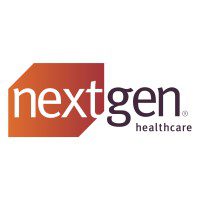
11. NextGen Healthcare
- G2 Rating: 3.7 out of 5 stars
- Price: Contact for pricing
NextGen Healthcare integrates seamlessly with its broader suite of healthcare management tools. It is particularly strong in facilitating interoperable healthcare ecosystems, enabling smooth data exchanges across various healthcare providers. The CRM focuses on enhancing patient care through comprehensive practice management, clinical care, and population health management tools.

Key features:
- Combines patient records with practice management to improve clinical workflows and patient care.
- Tools for managing the health of populations, including risk stratification and care management workflows.
- Comprehensive financial solutions that support revenue cycle management and optimize financial outcomes.
- Offers a secure online portal for patients to access their health information, communicate with providers, and manage their health.
- Provides a suite of mobile applications to allow providers and patients to interact and access information from anywhere.

12. Actium Health
- G2 Rating: No rating available
- Price: Contact for pricing
Actium Health focuses on enhancing healthcare provider-patient relationships through data-driven insights and intelligent patient engagement strategies. It uses AI to deliver actionable insights, helping healthcare organizations improve their outreach and personalize patient care. This CRM solution helps to streamline communications, improve health outcomes, and optimize operational efficiencies.
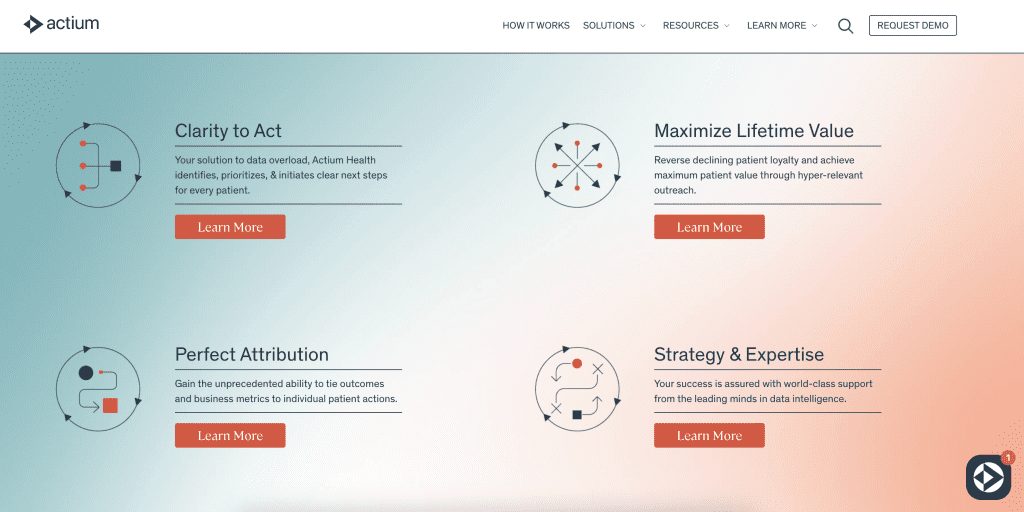
Key features:
- Utilizes advanced analytics to compile comprehensive patient profiles, highlighting health risks and opportunities for engagement.
- AI algorithms recommend the next best actions for patient engagement based on predictive modeling, helping to personalize and optimize healthcare interventions.
- Automates and manages patient outreach campaigns using targeted, data-driven strategies to improve patient acquisition and retention.
- Tracks and analyzes the patient journey, providing insights that help healthcare providers improve patient experiences and outcomes.
- Supports engagement across multiple channels, including email, SMS, and web portals, to maintain communication with patients wherever they are.
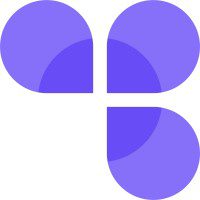
13. NimbleRx
- G2 Rating: No rating available
- Price: Contact for pricing
NimbleRx is a versatile CRM that caters to healthcare providers by helping them manage relationships more effectively and streamline communications. It combines social media integrations, contact management, and workflow automation, making it an excellent tool for healthcare professionals looking to maintain a comprehensive overview of their patient interactions and enhance personal connections.
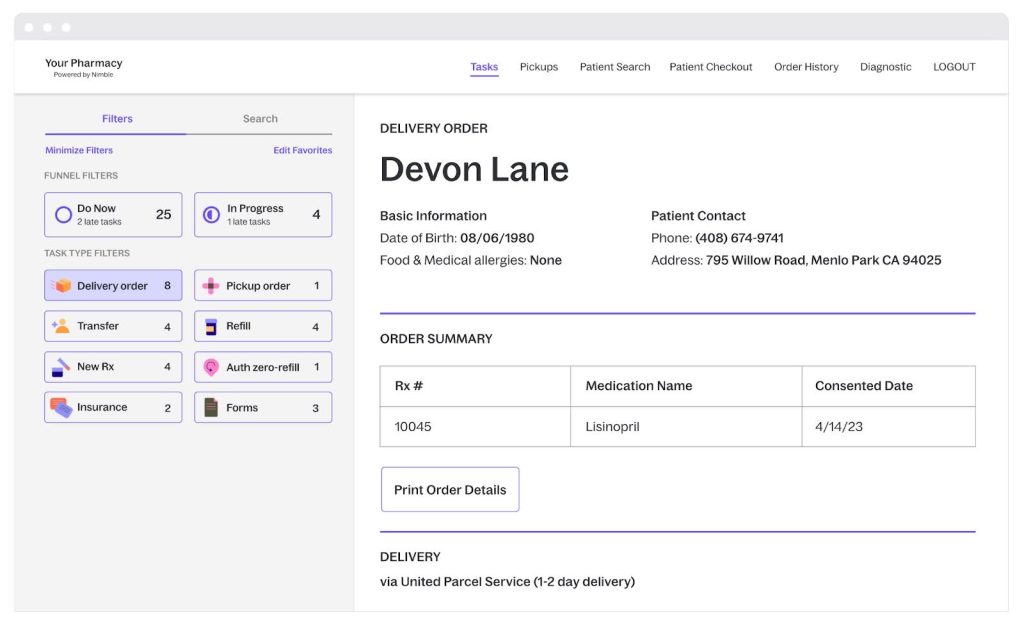
Key features:
- Automatically updates contact information from social profiles, emails, and other communications.
- Allows targeted and personalized communication with patients via group email messaging.
- Visual pipeline management tools help track patient interactions from initial contact through ongoing engagement.
- Logs every interaction with patients, including emails, calls, and social media, for comprehensive tracking.
- Seamless integration with office tools for easy access to documents and calendars.
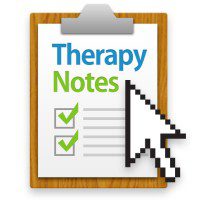
14. TherapyNotes
- G2 Rating: 4.5 out of 5 stars
- Price: Starts at $25/month
TherapyNotes is a niche CRM tool designed specifically for behavioral health professionals. It excels in managing clinical documentation, appointment scheduling, and billing processes, making it a great tool for therapists and mental health providers. The platform’s focus on compliance and security ensures that sensitive patient data is handled with care.
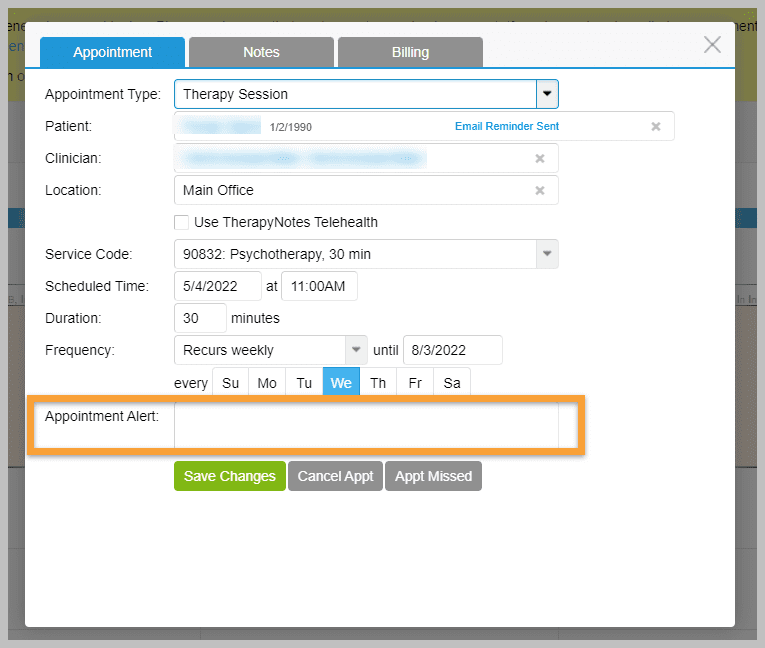
Key features:
- Tailored for behavioral health, offering tools specific to the needs of therapists and mental health professionals.
- Robust scheduling tools that handle the complexities of therapy appointments, including recurring sessions and group therapy.
- Tools to create and manage personalized treatment plans that track therapeutic goals and progress.
- Integrated billing system with support for electronic claims submission and insurance follow-up.
- Provides patients with secure access to schedule appointments, pay bills, and communicate with their therapist.

15. Athenahealth
- G2 Rating: 3.5 out of 5 stars
- Price: Contact for pricing
Athenahealth integrates with its larger cloud-based services for electronic health records, medical billing, and patient engagement. It’s renowned for enhancing operational efficiency and improving care delivery through real-time insights and connectivity. Athenahealth’s network-enabled approach to CRM allows healthcare organizations to achieve greater scalability and better health outcomes for patientds.
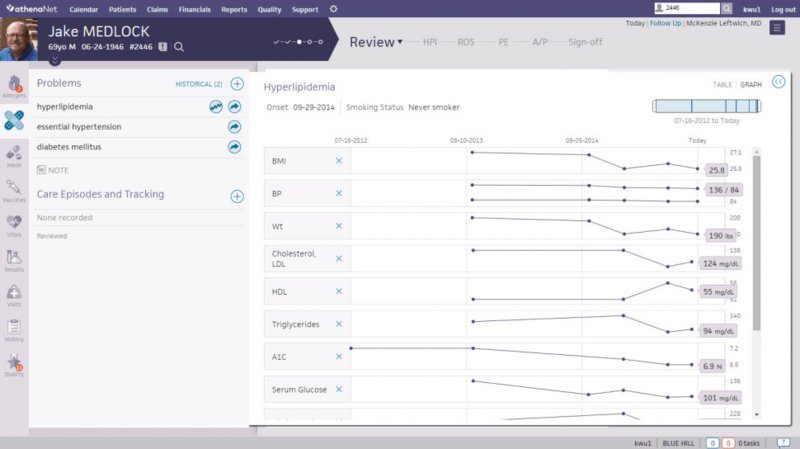
Key features:
- Offers cloud-based services, facilitating better collaboration and data sharing.
- Streamlines billing processes, enhances insurance claim tracking, and improves payment cycles.
- Provides tools for patient communication, appointment scheduling, and automated reminders to enhance patient retention and satisfaction.
- Comprehensive electronic health record management that optimizes clinical workflows and documentation.
- Supports population health management with tools for care management, patient outreach, and clinical reporting.
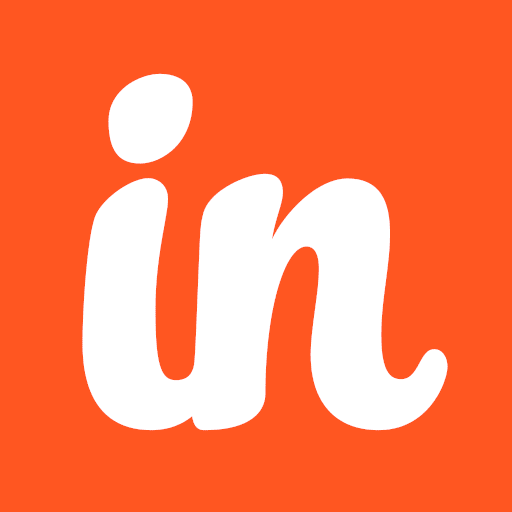
16. Insightly
- G2 Rating: 4.2 out of 5 stars
- Pricing: Starts at $29/user/month
Insightly offers a customized solution to manage patient relationships, track interactions, and optimize healthcare operations. It supports project management and offers tools for efficient resource allocation and patient communication. Insightly’s user-friendly interface and integration capabilities with a variety of platforms make it a great choice for healthcare providers who want to enhance operational transparency and boost patient satisfaction.
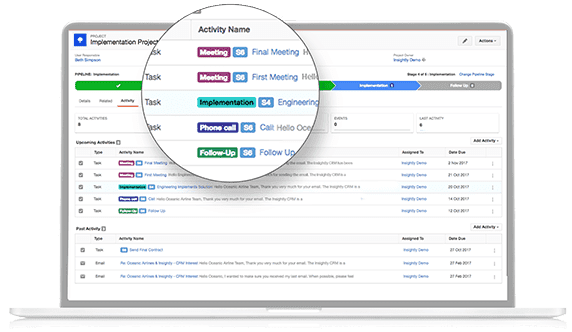
Key features:
- Advanced linking capabilities to view the relationships between contacts, organizations, patients, and providers.
- Integrates project management features to track and manage health initiatives and patient outreach programs.
- Tools to set and track milestones within patient care and organizational projects.
- Full mobile access for managing patient relationships and health projects on the go.
- Detailed reporting tools that provide insights into patient management and operational efficiency.

17. DrChrono
- G2 Rating: 3.5 out of 5 stars
- Price: Contact for pricing
DrChrono by EverHealth focuses on providing a streamlined CRM solution for medical practices, enhancing patient care with its intuitive electronic health record (EHR) and practice management software. It offers customizable medical forms, scheduling, and billing systems, which are particularly beneficial for small to medium-sized healthcare providers. DrChrono’s mobile-first approach ensures accessibility and convenience for healthcare professionals on the go.
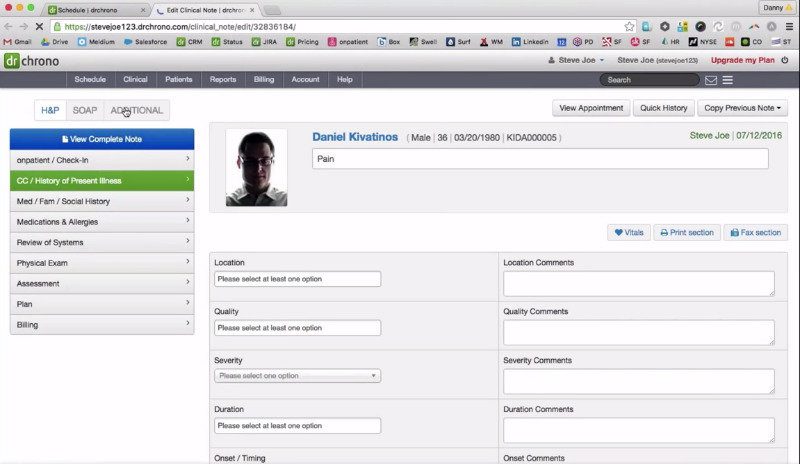
Key features:
- Allows providers to create custom medical forms for seamless data entry and patient information management.
- Integrated scheduling system that supports online booking, reminders, and calendar sync.
- Simplifies the billing process with automated coding suggestions and claim submissions.
- Automated patient check-in system that reduces wait times and improves patient experience.
- Includes an electronic prescribing system that allows direct sending of prescriptions to pharmacies.
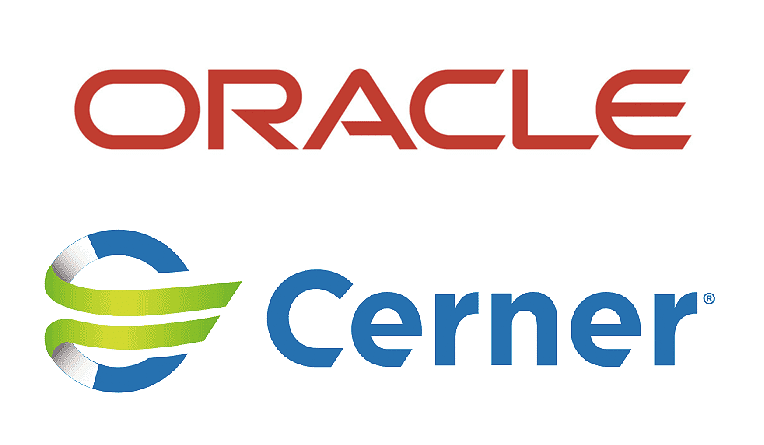
18. Cerner by Oracle Health
- G2 Rating: 3.6 out of 5 stars
- Price: Contact for pricing
Cerner represents a robust integration of Oracle’s technology prowess with Cerner’s extensive experience in healthcare to deliver next-generation health IT solutions. It aims to transform the healthcare industry by enhancing the effectiveness of healthcare providers through improved data analytics, more comprehensive patient management systems, and streamlined operations. The platform leverages Oracle’s cloud capabilities and Cerner’s expertise in electronic health records to offer an unparalleled suite of healthcare IT solutions that support the management of clinical, financial, and operational data across an enterprise.
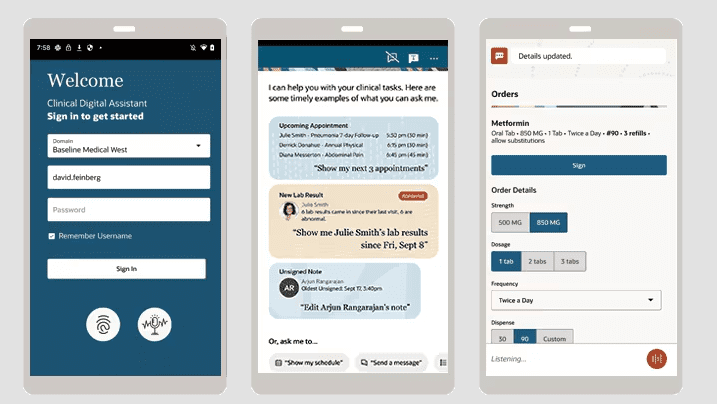
Key features:
- Delivers a single, comprehensive view of a patient’s health history accessible across all care settings.
- Designed to improve outcomes through data analysis, care coordination, and patient engagement.
- Ensures compliance with various health regulations, including privacy standards and reporting requirements.
- Facilitates data sharing and communication across various healthcare providers and institutions.
- Provides powerful analytics tools to derive insights from health data and guide clinical decisions.
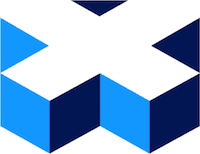
19. Practice Fusion
- G2 Rating: 3.9 out of 5 stars
- Price: Contact for pricing
Practice Fusion offers a cloud-based CRM solution for small, independent practices. It excels in managing patient records, appointments, and billing, all within a user-friendly platform. Despite being free, it provides comprehensive features that include charting, e-prescribing, and lab integration, making it a popular choice for healthcare providers looking for a cost-effective CRM solution.
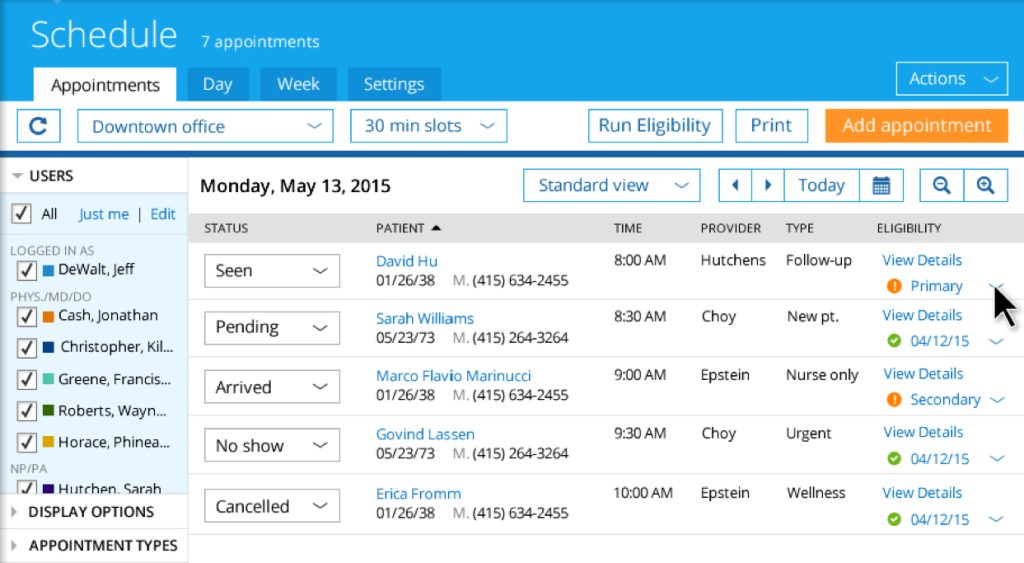
Key features:
- Free, cloud-based electronic health record platform designed for ease of use and accessibility.
- Intuitive charting interface that allows quick documentation of patient visits and medical histories.
- Integrated e-prescribing functionality that enables sending prescriptions electronically to pharmacies.
- Connects directly with labs and imaging centers for seamless ordering and retrieval of results.
- A secure portal that allows patients to access their health records, book appointments, and communicate with their providers.
Benefits of Implementing a Healthcare CRM
Here are a few benefits of implementing a healthcare CRM:
1. Improve the patient experience
According to an Accenture study, 68% of patients are willing to switch providers if they don’t receive a personalized experience.
Patient management features enable healthcare providers to track and manage patient information, such as demographics, medical history, allergies, medications, and treatment plans. All patient interactions are compiled in one location and are easily accessible by team members for informed decision-making. Using healthcare CRM tools, the patient experience can truly be personalized.
2. Streamline digital healthcare operations
Healthcare CRMs have transformed the daily routines of medical staff by making tasks like scheduling appointments and managing patient information much smoother. These tools integrate critical tasks into a single platform, allowing staff to focus more on patient care and less on paperwork.
Research from Black Book Market Research highlights that healthcare providers using CRM systems often see a revenue boost of up to 27%, demonstrating the significant efficiency and financial gains from streamlined operations.
3. Improve the quality of treatment for patients
Healthcare CRMs are revolutionizing patient care by enabling personalized treatment plans and educational content tailored to individual needs. These systems significantly enhance care coordination by facilitating the seamless sharing of patient data among all healthcare providers involved in a patient’s treatment. This integration ensures that every healthcare provider has up-to-date information, enabling them to make the best decisions quickly, and ultimately, improving the overall outcomes for patients.
4. Provide advanced communications
With healthcare CRMs, providers can continuously monitor patient progress and effectively follow up after treatments. This ongoing communication ensures that recovery is monitored closely and deviations from the expected progress are addressed swiftly. By providing timely interventions and minimizing errors or duplications in service, these systems ensure that patients receive the right treatment at the right time, enhancing recovery and patient satisfaction.
5. Increased efficiency
Healthcare CRMs automate numerous routine tasks, from patient scheduling to managing large volumes of data, which significantly frees up time for healthcare staff. This automation not only eliminates tedious and redundant tasks but also streamlines entire processes, boosting the operational efficiency of healthcare organizations. As a result, medical staff can devote more attention and resources to direct patient care, improving service quality and increasing the capacity to handle more patients effectively.
Must-Have Features in a Healthcare CRM
Here are the most important features of CRM software.
1. Appointment scheduling
Healthcare CRMs transform how appointments are managed by automating the scheduling process and sending reminders through emails, texts, or other communication channels. This feature is crucial in reducing no-shows and cancellations, allowing healthcare providers to optimize their schedules more effectively. With better time management, providers can increase their availability, potentially seeing more patients and improving healthcare accessibility.
2. Communication tools
Robust communication tools in healthcare CRMs enhance the dialogue between patients and providers. These systems facilitate real-time interactions through integrated chat options, boosting patient engagement by providing immediate answers and support. Moreover, these tools automate the dissemination of tailored health advice, timely reminders for upcoming appointments, and critical health updates across a variety of channels, ensuring patients receive consistent and personalized communication that can improve treatment adherence and satisfaction.
3. Patient management
Managing patient information efficiently is at the heart of healthcare CRMs. These systems store critical data such as medical histories, treatment records, and personal details, making it accessible when needed. This not only secures sensitive information but also makes it readily available to healthcare professionals, thus enhancing the accuracy and speed of patient care. This organized access to data ensures that every patient interaction is informed and that care decisions are made with the best available information.
4. Billing and payment processing
Healthcare CRMs streamline financial interactions through automated billing and efficient payment processing. They enable quick generation of invoices and use template-based quoting to simplify financial dealings for both staff and patients. By integrating with existing billing systems, these CRMs provide a comprehensive view of each patient’s financial records, reducing errors and enhancing the efficiency of financial operations within healthcare facilities.
5. Analytics and reporting
Advanced analytics and reporting capabilities are essential in healthcare CRMs. They pull together data from various sources, including EHRs and financial systems, to create a unified view of operations. These systems provide dynamic dashboards that display real-time data, helping healthcare providers track patient outcomes, monitor service quality, and make data-driven decisions that can lead to improved healthcare delivery and operational efficiencies.
6. Security and compliance
Security and compliance are paramount in managing patient data. Healthcare CRMs employ rigorous security measures, such as encryption of data both in transit and at rest, to protect sensitive patient information. These systems adhere to stringent regulations like HIPAA to ensure that all data handling processes comply with legal standards, thereby safeguarding patient privacy and building trust.
7. Integration with other systems
The true power of a healthcare CRM is realized when it is fully integrated with other systems. Whether it’s syncing with marketing automation tools, enhancing customer support through chat integrations, or streamlining calls with call center automation, these integrations make a healthcare CRM a comprehensive hub for managing all aspects of patient interaction. This holistic approach not only improves the efficiency of healthcare services but also enhances the overall patient experience by creating a seamless network of care.
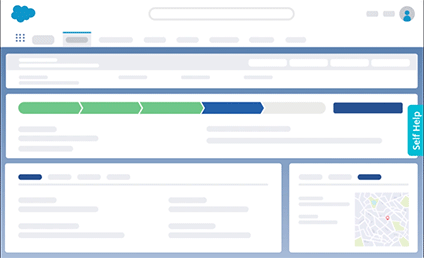
Choosing the right healthcare CRM for your organization is a significant step toward streamlining your operations and enhancing patient interactions. But the journey doesn’t end with selection alone—the next step is ensuring that your team can effectively use the CRM to its fullest potential. Given the complexity and depth of modern healthcare CRM systems, this can sometimes be an overwhelming challenge.
As a leading digital adoption platform (DAP), Whatfix is uniquely equipped to facilitate smooth CRM adoption. The platform enhances user experience through customized, interactive onboarding processes that are not only easy to follow, but also embedded directly within your CRM system. Whatfix’s features, like personalized walkthroughs, tooltips, and task lists, are designed to dramatically reduce the learning curve.
Whatfix’s smart tips and embedded knowledge bases provide ongoing support, ensuring that your team can find help exactly when they need it directly within the application. This level of integrated support is crucial for maintaining high productivity and ensuring that your staff feels confident and competent when using the new system.
But Whatfix’s benefits extend beyond easing the onboarding process. By enabling better CRM adoption, Whatfix helps maximize your technology investment, ultimately leading to better patient care management, more efficient service delivery, and improved operational outcomes.
Experience the transformative impact of Whatfix firsthand. Schedule a free demo today to see how our digital adoption platform can revolutionize how your organization adopts and utilizes healthcare CRM.
Enhance your team’s performance, reduce frustration, and unlock the full potential of your CRM investment with Whatfix.

Thank you for subscribing!

CRM Software Clicks Better With Whatfix
Searching for a digital adoption platform to drive CRM adoption and achieve sales outcomes? See how Whatfix enables CRM end-users with in-app guidance, analyzes behavior to identify friction, and gathers feedback with surveys.




